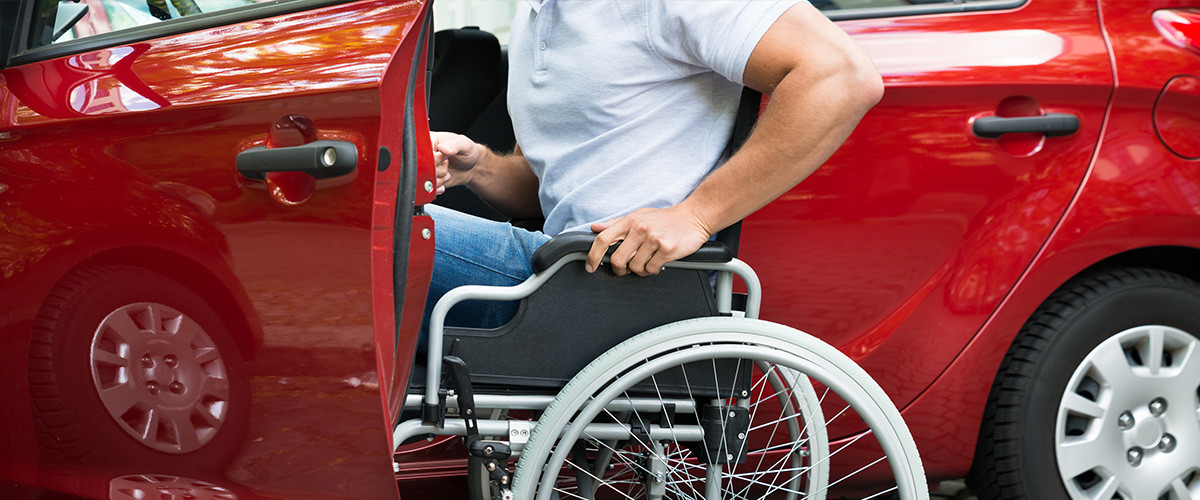
How can I get approved for a low rate car loan on disability?
People who qualify for financial aid receive a monthly income if they’re unable to work full-time and will usually receive other benefits if they’re unable to work at all. Having a disability doesn’t necessarily impact the ability to drive a car, as a disability can be a temporary physical or cognitive impairment. Keeping this in mind, one should not assume that getting approved for the lowest car loan rates on disability or any other government program would be easy.
Seeking an approval for a low car loan rate on disability can be hard. The reason for this is because if a person’s primary source of income is from a government program and if they default on a car loan, a lender can’t chase that particular income source. Lenders take every step cautiously when they consider a car loan applicant who receives income from a government program. However, there are ways that one can improve their chances of being approved for a car loan on disability. If you’re currently receiving your income from a government program, the following advice could help you get approved for the best car loan rates possible.
-
1. A garnished source of income
Garnishment is the process where a creditor can collect what a debtor owes. If the debtor falls behind on a loan with an income source from the government, the creditor can’t reach for this property. This is why applying for a car loan with an income that is purely government sourced often involves a tough approval process, and it can be even more challenging if the applicant has less than perfect credit. However, if the applicant has another income source, for instance, part-time employment, the chances of getting approved for a car loan increase, because this source of income can be used as garnish for creditors. The longer an applicant has a part-time job and the higher the additional income is, the better chance of loan approval.
Lenders who help applicants with less than perfect credit usually have minimum income requirements that range between $1,500 to $1,800 per month (before taxes). If you get at least this much with a part-time job, or if you make this much with a job and government income combined, this amount is typically enough to get a lender to consider approving you for a loan.In order for any income sourced by the government to be allowed for a car loan, an applicant must provide additional information to lenders which proves the applicant has received government income for at least six months and that they will continue receiving the payments for the entirety of the loan tenure. An applicant who has a part-time job alongside government income will need to verify recent paycheque stubs, and potentially provide tax records to show the amount of income reported in the last year.
-
2. Look for a co-signer
Particularly in the case when an applicant doesn’t have a garnishable source of income, applying for a car loan on government income with a co-signer can greatly enhance your chances for an approval. Applying for a car loan with a close family member or peer who earns a stable wage, has a good job, and solid credit as a cosigner will give lenders something to depend on if the applicant fails to pay for the loan. A co-signer agrees to share the responsibility of the loan, which means that any delinquencies on the loan will impact both the applicant and the co-signer’s credit report, potentially lowering both scores and impacting the loan approval process for the co-signer in the future. However, an application with a co-signer will likely be approved by a lender, as any loan mismanagement by the applicant can be handled with the co-borrower.
-
3. Review your credit history
An applicant looking for a loan with income originating from a government program should be aware of their credit history and credit score before making any inquiries with a lender. Car dealerships consider an applicant’s credit score and history before determining what they’re eligible for. Regardless if a person receives income from a government program or not, an applicant that has a healthy credit history and good credit score will have a higher chance of being approved for a loan compared to someone with a poor credit score and little credit history.
Auto Credit Express states that long-term residence stability and “situational” bad credit (i.e. medical issue) as opposed to “habitual” bad credit (i.e. delinquencies caused by late payments) will also increase your chances of being approved by a lender.
Canadians who depend on government programs like disability or ODSP shouldn’t feel discouraged when it comes time to apply for an auto loan. There are several lenders who work with applicants with low income or less than perfect credit to find auto financing that lies within their budget. Although the application process might be harder for a person who receives 100 per cent of their income from a government program, there are options available for Canadians who have a strong credit background, some kind of garnished income and who agree to apply for vehicle with a co-signer.
If you’re a Canadian with low or poor credit and you’re interested in rebuilding your score, visit Canada Auto Experts or call 1-855-550-5565 to talk to a credit specialist today!
Recent Posts
- How you can benefit from our dealership connections
- Benefits of having an expert help you shop for a vehicle you can afford
- Avoid high interest rate and have an expert on your side
- How to negotiate the best deal on a car loan in Canada
- Tips for improving credit scores to qualify for better auto financing rates in Canada
